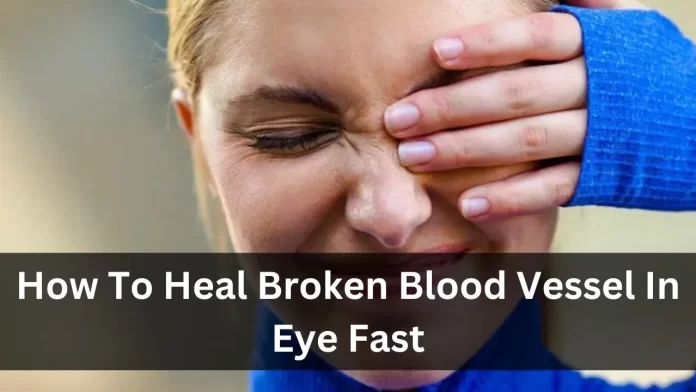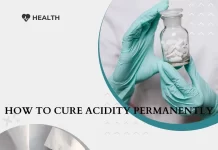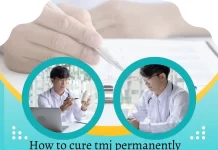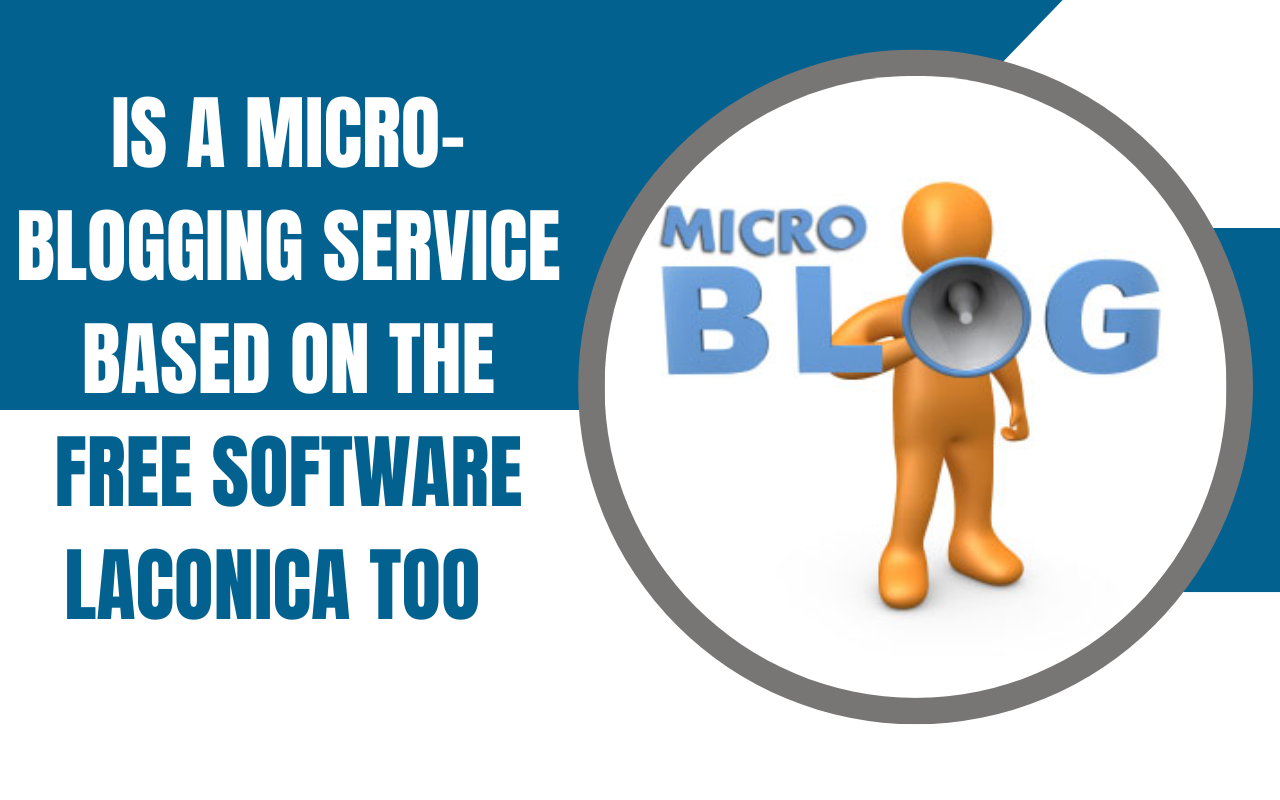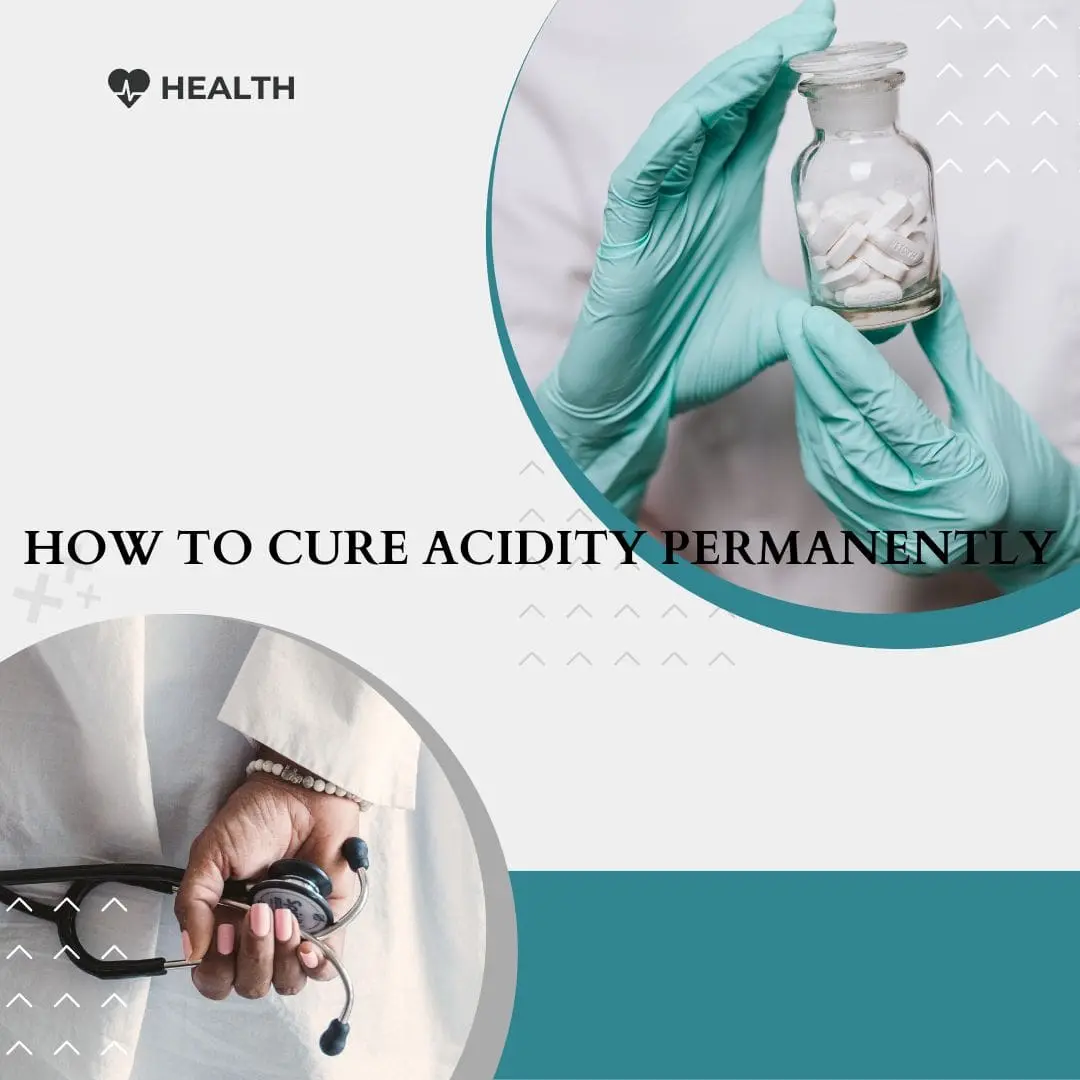Having a broken blood vessel in your eye can be a distressing and uncomfortable experience. The condition, known as subconjunctival haemorrhage, occurs when a tiny blood vessel near the surface of the eye bursts and causes blood to pool in the conjunctiva, the clear membrane that covers the white part of the eye. While a broken blood vessel in the eye may look alarming, it is usually harmless and resolves on its own without any medical intervention.
However, there are a few steps you can take to promote healing and alleviate any discomfort associated with the condition. In this article, we will explore how to heal broken blood vessel in eye fast.
Symptoms of Popped Blood Vessels in Eye
A clear indication of broken blood vessels in the eye or a subconjunctival hemorrhage is the presence of a vividly red area on the sclera, the white part of the eye.
If a subconjunctival hemorrhage does not cause any alterations in vision, pain, or discharge, you should be able to carry on with your normal activities without any issues. You might feel slight irritation or discomfort due to the presence of blood beneath the surface of your eye.
Causes of Broken Blood Vessel in Eye?
If you are confident that the patchy red appearance of the sclera is not caused by pink eye but rather by ruptured blood vessels in the eye, you might be curious about the underlying cause of this issue.
Typically, a sudden increase in blood pressure is the main culprit behind the bursting of the blood vessel. This results in a splatter of bright red blood on the white part of the eye, known as the sclera.
However, there could be other factors leading to the appearance of burst blood vessels in the eye. The causes of ruptured blood vessels in the eye can be divided into two categories: traumatic and spontaneous, depending on the nature of the triggering factors.
Prevent Popped Blood Vessel in the Eye?
To prevent issues like burst blood vessels in the eye or subconjunctival haemorrhage, it is important to take precautionary measures and prioritise eye protection.
If you have a bleeding disorder or are taking blood-thinning medication, consult your doctor to explore possible solutions.
When experiencing eye irritation, be cautious while rubbing your eyes, opting for gentle motions. Vigorous and frequent rubbing can pose a risk to the eye blood vessels, potentially causing minor injuries or subconjunctival haemorrhage.
Here are some additional crucial precautions to prevent ruptured blood vessels in the eye:
- Always wear protective eyewear during sports activities to safeguard your eyes from potential injuries.
- Use sunglasses outdoors to shield your eyes from harmful radiation, as well as dust, dirt, and other particles that may cause injury.
- Seek assistance from others when lifting heavy weights or engaging in strenuous activities, as these activities can increase pressure on the delicate blood vessels in the eyes.
- If you are experiencing constipation, consult your doctor for appropriate treatment, as it is one of the main causes of burst blood vessels in the eye.
- Avoid activities and substances that can induce sneezing, coughing, or vomiting, such as heavy drinking or exposure to allergens in the environment.
How to heal broken blood vessels in the eye quickly?
Discovering blood in your eye can be an alarming experience, but it is generally not a cause for major concern.
In most cases, subconjunctival haemorrhages are naturally reabsorbed by the body within a period of 2-3 weeks following the initial eye injury. Larger burst blood vessels may take slightly longer to resolve.
If you encounter any pain or discomfort, it is advisable to use non-blood-thinning over-the-counter pain relief medications.
Medical professionals may suggest the use of moisturising eye drops or artificial tears to alleviate symptoms. Antibiotic drops or ointments are only necessary in specific cases.
By following these guidelines, you can alleviate any concerns and assist in the healing process of subconjunctival haemorrhages or burst blood vessels in the eye.
When to See a Doctor?
If you experience anything more than mild irritation, it is advisable to seek medical attention. Symptoms such as discharge, swelling, sudden changes in vision, or sharp pain should be evaluated by an eye doctor.
Typically, a burst blood vessel in the eye takes approximately 2 weeks to heal. If the condition persists beyond 14 days without signs of improvement, it is recommended to have it examined by a doctor.
FAQ
Q1: What causes burst blood vessels in the eye?
Ans: Sudden rise in blood pressure is a common cause.
Q2: How long does it take for a popped blood vessel in the eye to heal?
Ans: Typically, it heals within 2 weeks.
Q3: When should I consult a doctor regarding a burst blood vessel in the eye?
Ans: Seek medical attention if you experience severe symptoms or if it doesn’t heal after 14 days.
Q4: Are there any preventive measures to avoid burst blood vessels in the eye?
Ans: Protect your eyes, avoid activities that increase pressure, and wear protective eyewear during sports.

